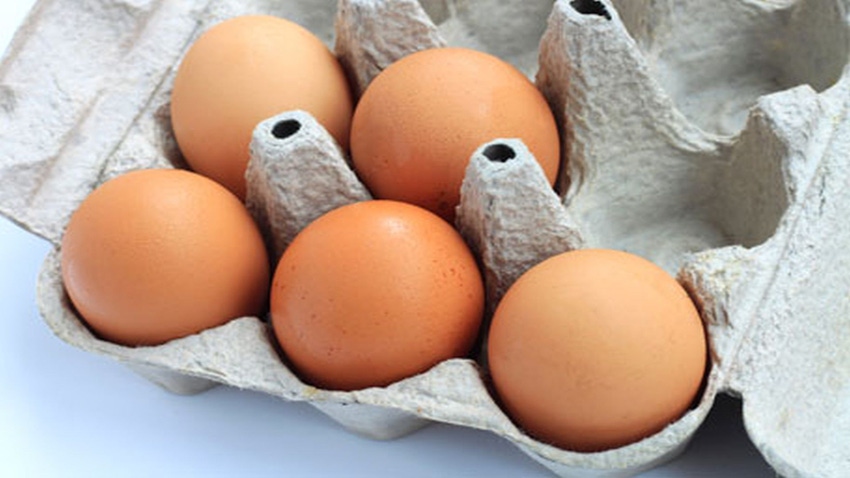USDA and FDA actions help shift shell eggs to retail locations such as supermarkets.

Egg producer groups have been working with both the U.S. Department of Agriculture and FDA to increase available supplies of eggs at retail. As a result of the COVID-19 pandemic, the U.S. Food and Drug Administration released a guidance document to provide producers of shell eggs that normally would be sent to facilities for further processing the flexibility to sell their eggs for distribution to retail locations, such as supermarkets, when certain conditions are present. This flexibility will help egg producers meet increased demand for shell eggs by consumers at retail locations.
Chad Gregory, president and chief executive officer of the United Egg Producers said, “Recent changes made by USDA and FDA to temporarily revise labeling for eggs going to grocery stores are welcomed by America’s egg farmers. The flexibility in labeling and packaging will direct more eggs to where they are needed right now – to the nation’s grocery stores.
“Bringing eggs from the restaurant and hospitality side of the egg markets, where they are currently needed less, into the retail sector makes good sense. UEP’s farmer-members are committed to producing a steady supply of eggs and are partnering with their grocery customers to restock egg cases across the U.S.,” Gregory added.
The UEP stated they petitioned the FDA to establish a safe and verifiable way for breaking eggs to be diverted to retail channels. UEP also worked with the Agricultural Marketing Service (AMS) to facilitate the repositioning of eggs from food service, where they were not needed, to retail, where they were desperately needed. AMS temporarily modified its requirements to make this movement possible. To ensure that eggs previously destined for food service and quick-serve restaurants do not go to waste, UEP petitioned AMS to purchase processed egg products for food banks and make advance purchases for use in schools when they reopen.
Ken Klippen, president of the National Assn. of Egg Farmers, added he sees this as "a rising tide lifts all boats."
"This will impact some egg farmers, and we appreciate FDA's efforts. Eggs normally destined for the breakers will go to retail benefiting those farmers while also helping the breaker market by transitioning some of the inventory, normally for further processing into retail. We embrace any and all flexibility to egg regulations at this time," he said.
In April 6, FDA release the guidance document Temporary Policy Regarding Enforcement of 21 CFR Part 118 (the Egg Safety Rule) During the COVID-19 Public Health Emergency, which under the temporary policy will adjust the egg safety rule.
FDA does not intend to object if shell eggs from a poultry house consisting solely of laying hens up to 45 weeks of age are sold to the table egg market provided the following conditions are present:
For Poultry Houses Providing Eggs to the Table Egg Market:
A producer complies and has been in compliance with all requirements of the Egg Safety Rule for the poultry house for the life of the flock, including SE monitored pullets, biosecurity, rodent and pest control, cleaning and disinfection, environmental and egg testing, refrigeration, and recordkeeping.
Before sending any eggs to the table egg market, a producer simultaneously conducts environmental and egg testing (as described in 21 CFR 118.7 and 118.8) for the poultry house. Note that environmental testing would still occur when the laying hens are 40-45 weeks of age and subsequently if molting is induced.
No environmental tests or egg tests are positive for SE in the poultry house.
A producer processes eggs from the poultry house separately from eggs on the farm that are not going to the table egg market.
A producer implements and maintains a written plan (e.g., use of dedicated equipment, change of personnel protective equipment between houses) to prevent cross-contamination between poultry houses whose eggs are going to the table egg market and any other poultry houses on the farm.
For Poultry Houses Not Providing Eggs to the Table Market:
Before sending any eggs to the table egg market, a producer complies with all requirements of the Egg Safety Rule for poultry houses that are not sending eggs to the table egg market (e.g., biosecurity, rodent and pest control, cleaning and disinfection, refrigeration, and recordkeeping), except for testing and SE monitored pullets.
This policy does not apply to poultry houses with laying hens over 45 weeks of age at the time this guidance is issued. Laying hens older than 45 weeks of age are not included because environmental samples collected after 45 weeks are less likely to detect SE, if present, than samples collected at 40-45 weeks.
This policy is intended to remain in effect only for the duration of the public health emergency.
This guidance is one of several steps FDA is taking to address increased consumer demand for shell eggs at supermarkets. In addition, FDA has issued a Temporary Policy Regarding Packaging and Labeling of Shell Egg Sold by Retail Food Establishments During the COVID-19 Public Health Emergency.
About the Author(s)
You May Also Like




.png?width=300&auto=webp&quality=80&disable=upscale)
